Lab-grown teeth to 'fill in the gaps' in regenerative dentistry
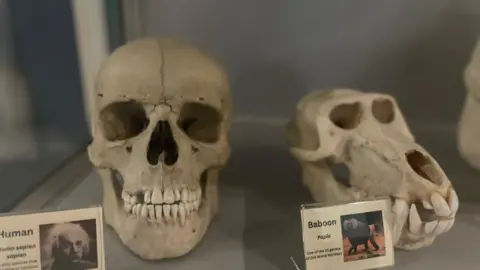 BBC
BBCWhile many species can regenerate their teeth, human beings only get one chance at growing a healthy set of adult pearly whites.
But that could be about to change.
Scientists from King's College London have managed to grow a tooth under laboratory conditions.
And while this breakthrough may still be a long way from filling in the gaps in anyone's mouth, researchers say it is filling in the gaps in research.
"This idea of replacing the tooth in a biological way by regrowing it, drew me to London and to King's," explained the director of regenerative dentistry, Dr Ana Angelova-Volponi.
"By growing a tooth in a dish, we are really filling in the gaps of knowledge."
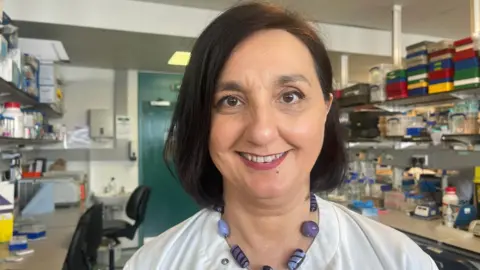
A perfect smile is highly sought after, with many people turning to braces or implants to give them a "reality TV" look.
But implants can cause unforeseen problems for the patient, and the dentists looking after them.
"Implants require invasive surgery and good combination of implants and alveolar bone," explained Xuechen Zhang, a final-year PhD student at the Faculty of Dentistry, Oral & Craniofacial Sciences.
"Lab-grown teeth would naturally regenerate, integrating into the jaw as real teeth.
"They would be stronger, longer lasting, and free from rejection risks, offering a more durable and biologically compatible solution than fillings or implants."
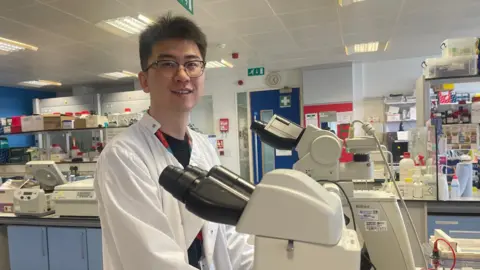
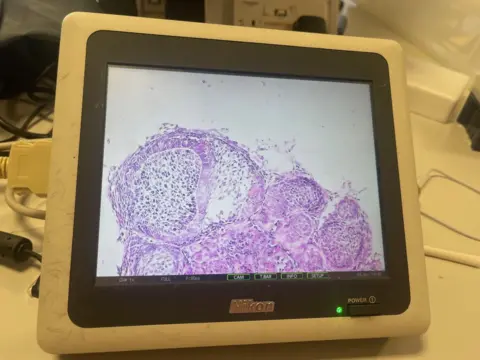
The King's team, in collaboration with Imperial College London, has successfully introduced a special type of material that enables cells to communicate between each other.
This means that one cell can effectively tell another to start becoming a tooth cell, which mimics the environment of growing teeth and allows scientists to recreate the process of tooth development in the lab.
Having successfully created the environment needed to grow teeth, scientists now need to work out how to get them from the lab to a patient's mouth.
And that could take many more years.
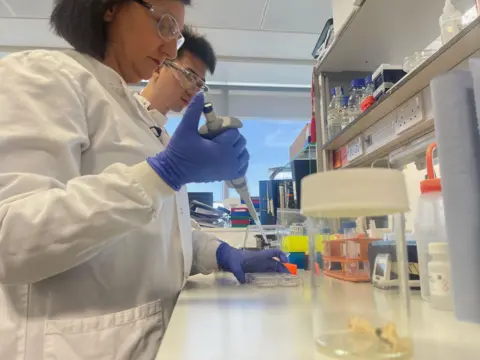
"We have different ideas to put the teeth inside the mouth. We could transplant the young tooth cells at the location of the missing tooth and let them grow inside mouth," said Mr Zhang.
"Alternatively, we could create the whole tooth in the lab before placing it in the patient's mouth."
But whatever method the scientists choose, the initial process starts in the laboratory.
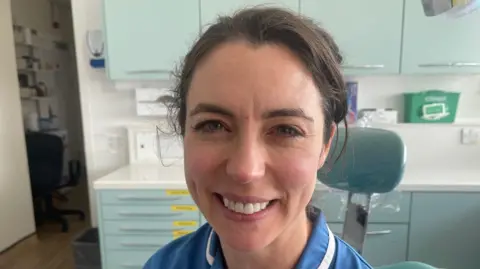
Poor oral health can affect people's ability to eat, speak and socialise normally, and can be linked to heart problems and infections if bacteria gets into the bloodstream. The elderly can be particularly vulnerable.
More than half of older adults who live in care homes have tooth decay, compared with 40% of over 75s who do not live in care homes, according to the National Institute for Clinical Excellence and the Social Care Institute for Excellence.
Saoirse O'Toole, a clinical lecturer in prosthodontics at King's College, said: "This new technology of regrowing teeth is very exciting and could be a game-changer for dentists.
"Will it come in my lifetime of practice? Possibly. In my children's dental lifetimes? Maybe. But in my children's children's lifetimes, hopefully."
Listen to the best of BBC Radio London on Sounds and follow BBC London on Facebook, X and Instagram. Send your story ideas to [email protected]
